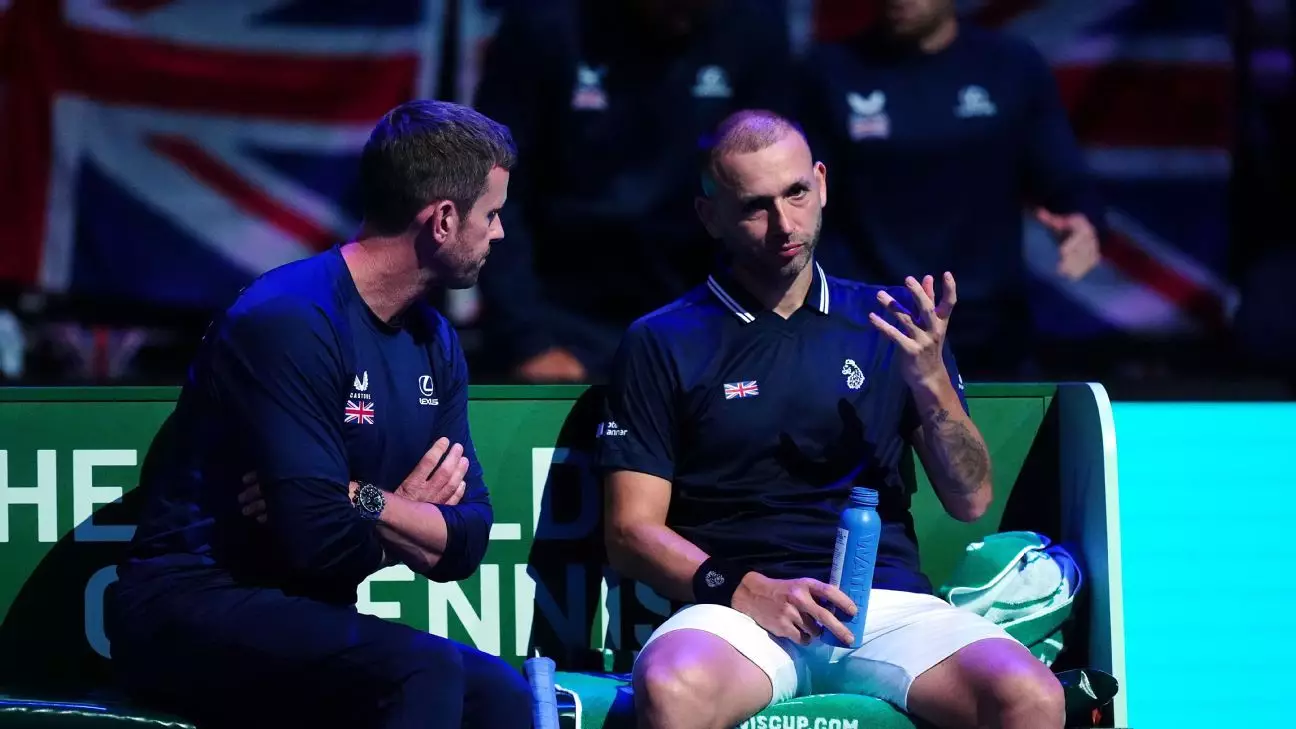Great Britain’s journey in the Davis Cup came to a swift and unforgiving halt after a string of disappointing performances culminated in a critical loss to Canada. Dan Evans’ match against Denis Shapovalov set a dire tone for the group-stage contest, as Evans suffered a crushing defeat with a scoreline of 6-0, 7-5. Facing the world No. 100, the British player was expected to put up more of a fight, but the reality was stark: Britain needed to win all three matches that day to keep any dreams of advancement alive, and the early loss placed them on shaky ground.
The first set offered little hope, with Shapovalov dominating the court and leaving no room for error. Evans struggled to find his footing, failing to win a single game that ultimately set the tone for the rest of the match. In the second set, however, Evans seemed to regain some composure, playing with more determination and forcing Shapovalov to fend off multiple break points. This glimmer of resolve, however, was overshadowed by a single critical error at the match’s climax, where an under-hit backhand sent the ball crashing into the net, sealing Great Britain’s fate and dashing their hopes for progression.
The second match on Sunday featured Jack Draper squaring off against Felix Auger-Aliassime, a clash loaded with context due to their previous encounter at the Cincinnati Open. During that prior meeting, Draper had won in controversial circumstances when the ball appeared to touch the court before bouncing over the net, an incident that left fans divided on the fair play. Unfortunately for Draper, this encounter saw him come up short, as he fell to Auger-Aliassime in a tightly contested match that ended in straight sets, 7-6 (10-8), 7-5. The frustration of the earlier loss seemed to follow Draper onto the court, hampering his performance and bubbling up again with missed opportunities that could have turned the tide.
In a bid to salvage pride and regain some semblance of momentum, Evans teamed up with Neal Skupski to battle against Auger-Aliassime and Shapovalov in the final match of the day. As the stakes rose, so did the pressure on the British duo; however, the energy on the court didn’t reflect any significant turnaround. The match was a formality at this point, showcasing the stark reality that Canada was already poised to advance, while Great Britain’s only notable victory in the group came against Finland.
The team, under Leon Smith’s guidance, faced the cruel reality of their shortcomings, with only one win that placed them firmly at the bottom of the group. This year’s Davis Cup campaign presented an encouraging set of potential, but the unfortunate reality of individual performances reveals the need for introspection and growth moving forward. The elimination sends a loud message: expectations are high, but they must be met with skill, strategy, and resilience. As the dust settles from this abrupt exit, British tennis must regroup and reassess its approach to future challenges, striving for improvement in hopes of a brighter outcome next time.


Leave a Reply